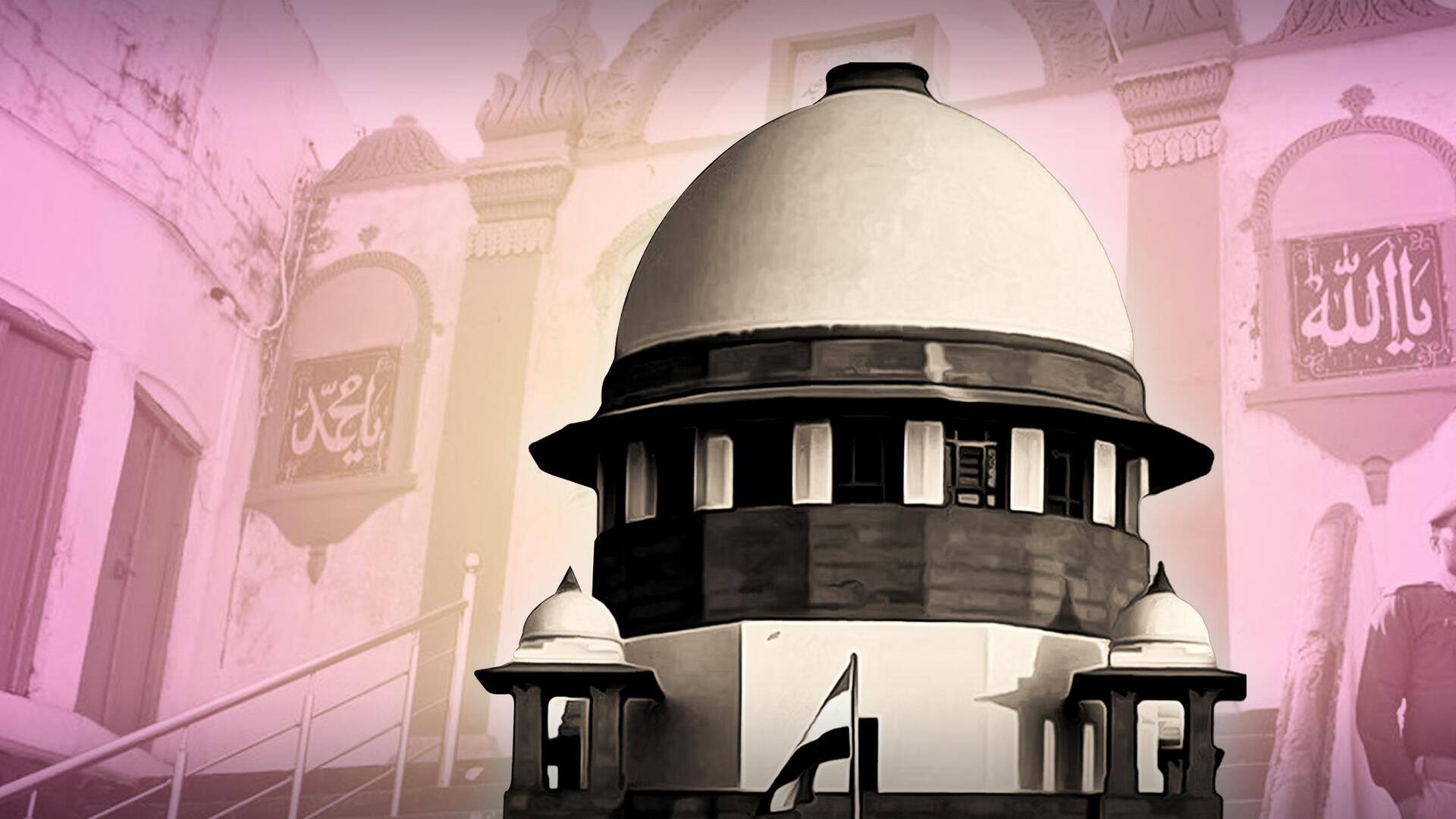
SC halts passing orders, surveys against existing religious structures
What's the story
The Supreme Court of India has passed an interim order, staying the registration of new lawsuits against places of worship.
The decision was taken on Thursday by a special bench of Chief Justice Sanjiv Khanna, Justice Sanjay Kumar, and Justice KV Viswanathan.
The court's directive also bars lower courts from passing effective interim or final orders in pending cases concerning religious sites, including survey orders.
Order
What the bench said
"As the matter is sub-judice before this court, we deem it appropriate to direct that while suits may be filed, no suits would be registered and proceedings undertaken till further orders of this Court," the bench said.
The court's directive came during a hearing on petitions challenging the Places of Worship (Special Provisions) Act, 1991.
The law prohibits changing the religious nature of places of worship from their status as of August 15, 1947.
Proceedings update
Ongoing proceedings and government's response
The main petition was filed by Ashwini Kumar Upadhyay in 2020.
His argument is that the Act allows illegal acts of invaders who have taken over holy sites to continue indefinitely by preventing legal recourse for aggrieved Hindus, Jains, Buddhists, and Sikhs.
The Supreme Court, however, has not stayed proceedings in pending cases against places like mosques and dargahs.
In total, there are 18 pending cases against 10 mosques or shrines across India.
Act support
Political parties support Places of Worship Act
It has also asked the Union government to file a counter-affidavit within four weeks.
Several political parties, including the Communist Party of India (Marxist), Indian Union Muslim League, Dravida Munnetra Kazhagam, and Nationalist Congress Party have filed intervention applications in support of the Places of Worship Act.
They contend that the law upholds public order and secularism by maintaining the status quo of religious sites as they were at independence.
Act debate
Act's relevance in recent public discussions
The decision of the case may have an impact on ongoing lawsuits brought by Hindu plaintiffs seeking rights to properties housing Muslim mosques based on allegations that these mosques were built over historical temples.
These lawsuits include the Shahi Jama Masjid in Sambhal, the Gyanvapi Mosque in Varanasi, the Shahi Eidgah Masjid in Mathura, and the Ajmer Dargah in Rajasthan.
The Muslim parties have challenged the maintainability of such suits, invoking the Places of Worship Act.